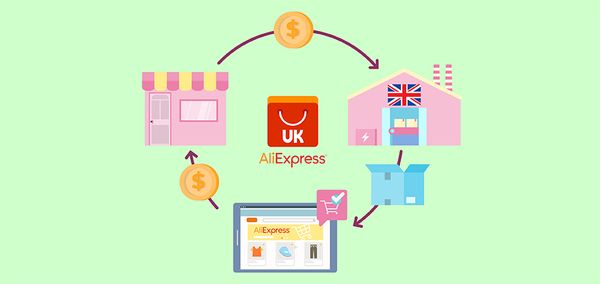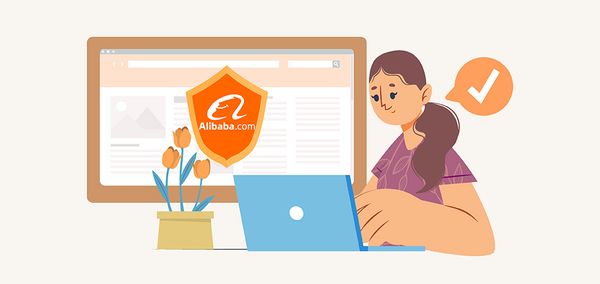What Is the Difference Between a Supplier and a Vendor in Dropshipping

In the fast-paced world of e-commerce, dropshipping has emerged as a popular business model that allows entrepreneurs to set up online stores without the hassle of managing inventory or shipping logistics. As an aspiring dropshipper, understanding the intricacies of this industry is crucial to your success.
Two key terms that often come up in dropshipping discussions are "supplier" and "vendor." While they may appear interchangeable at first glance, there are distinct differences between the two that can greatly impact your dropshipping journey. In this blog post, we will delve into the contrasting roles and functions of suppliers and vendors in the context of dropshipping.
What Is a Dropshipping Vendor
A vendor is an individual who acquires goods from manufacturers and offers them to customers. They regularly interact with consumers as they are the final link in the supply chain. Thus, when performing market research, manufacturers contact the suppliers.

|
Find Better Supplier For Products DSers Supplier Optimizer - One click to filter out the most proper suppliers for your products |
It is not necessary for the vendor to make or create their goods. Instead, a seller might raise their price and resell items they bought from another merchant. Businesses that sell goods directly to clients include stores and restaurants, which are referred to as vendors.
Examples of Dropshipping Vendors Across Different Industries
- Electronics Industry: TechCraze Direct, a popular dropshipping vendor that offers a wide range of electronic products, including smartphones, laptops, gaming consoles, and smart home devices.
- Fashion and Apparel: TrendyThreads, a renowned dropshipping vendor specialising in trendy clothing, fashion accessories, and footwear for men, women, and children.
- Home Decor: DecorEase, a leading dropshipping vendor that provides a diverse selection of home decor items, including furniture, wall art, decorative accents, and lighting fixtures.
- Beauty and Skincare: GlamourGlow, a trusted dropshipping vendor offering a comprehensive range of beauty and skincare products, including makeup, skincare essentials, hair care items, and beauty tools.
- Health and Wellness: WellnessWave, a reputable dropshipping vendor focusing on health and wellness products such as vitamins, supplements, fitness equipment, and natural health remedies.
- Sports and Fitness: ActiveLife Gear, a specialised dropshipping vendor offering a variety of sports and fitness products, including activewear, workout equipment, sports accessories, and outdoor gear.
- Baby and Kids: LittleStars Boutique, a popular dropshipping vendor that specialises in baby and kids' products, including clothing, toys, nursery essentials, and baby care items.
- Pet Supplies: PawsomePets, a dedicated dropshipping vendor that offers a wide range of pet supplies, including pet food, toys, grooming products, and accessories for dogs, cats, and other pets.
What Is a Dropshipping Supplier
A supplier is essential to the supply chain since he acts as the main source of input. A supplier may also offer large quantities of goods to manufacturers. Thus, a supplier acts as a go-between for the consumer and the manufacturer, earning commissions from both. At every stage of the product life cycle, suppliers are vital. The term "product life cycle" refers to the period of time needed for a product to develop and reach the market. The length or shortness of the product life cycle will rely on the volume of the firm.
To receive the ideal items, however, organisations unquestionably need trustworthy and reputable suppliers. Keeping your ground with your suppliers is so essential. The supplier's role might be unpredictable and challenging in any company. One explanation is that producers and merchants require a specific level of quality and quantity of services in order to sell their products.
Examples of dropshipping suppliers in various industries
- Electronics Industry: TechSource Distribution, a dropshipping supplier contains expertise in electronics, including smartphones, tablets, laptops, gaming consoles, and accessories.
- Fashion and Apparel: FashionWholesale Direct, a dropshipping supplier that partners with clothing manufacturers and wholesalers to offer a wide range of fashion apparel, footwear, and accessories.
- Home Decor: HomeAccent Plus, a dropshipping supplier expert in home decor products, such as furniture, wall art, decorative items, lighting fixtures, and home accessories.
- Beauty and Skincare: BeautySource Pro, a dropshipping supplier that collaborates with cosmetic manufacturers and skincare brands to offer a variety of makeup, skincare products, hair care items, and beauty tools.
- Health and Wellness: HealthEssentials Plus, a dropshipping supplier has in-depth knowledge in health and wellness products, including vitamins, supplements, fitness equipment, natural health remedies, and personal care items.
- Sports and Fitness: FitGear Distribution, a dropshipping supplier that provides a wide range of sports and fitness products, including activewear, workout equipment, sports accessories, and nutritional supplements.
- Baby and Kids: LittleStars Wholesale, a dropshipping supplier focusing on baby and kids' products, such as clothing, toys, nursery essentials, baby care items, and children's accessories.
- Pet Supplies: PetProvisions Direct, a dropshipping supplier that offers a variety of pet supplies, including pet food, toys, grooming products, pet care essentials, and accessories for dogs, cats, and other pets.
Differences Between Dropshipping Vendors and Suppliers
Dropshipping Vendors and Suppliers are both essential entities in the dropshipping business model, but they have distinct roles and responsibilities. Here are the differences between dropshipping vendors and suppliers:
Role and Function
- Vendor: A dropshipping vendor is a company or entity that supplies products to the dropshipper. Vendors typically have their own product catalogue and handle aspects such as branding, packaging, and order fulfillment. They may offer customization options and support services to the dropshipper.
- Supplier: A dropshipping supplier is a company or entity that sources and stores products on behalf of the dropshipper. Suppliers primarily focus on product sourcing, inventory management, and order fulfillment. They may not have their own brand or catalogue but work with various manufacturers and wholesalers to provide a wide range of products.
Product Catalogue
- Dropshipping Vendor: Vendors have their own product catalogue, featuring a specific range of products that dropshippers can choose from. They curate and update their catalogue based on market trends, customer demand, and their niche expertise.
- Dropshipping Supplier: Suppliers offer access to a broader range of products from different manufacturers and wholesalers. They provide dropshippers with a more extensive selection of products within their chosen industry or niche.
Branding and Packaging
- Dropshipping Vendor: Vendors may offer branding and packaging customization options to align with the dropshipper's brand. They enable the dropshipper to maintain a consistent brand image and provide a cohesive customer experience.
- Dropshipping Supplier: Suppliers typically do not focus on branding and packaging customization. Their main responsibility is to ensure the products are stored, packed, and shipped efficiently, without specific attention to the dropshipper's branding requirements.
Order Fulfilment
- Dropshipping Vendor: Vendors handle order fulfillment directly, picking, packing, and shipping products to the end customers on behalf of the dropshipper. They take responsibility for ensuring the timely and accurate delivery of orders.
- Dropshipping Supplier: Suppliers may or may not directly handle order fulfillment. They primarily supply the products to the dropshipper, who is responsible for processing and fulfilling customer orders.
Support and Services
- Dropshipping Vendor: Vendors often provide additional support and services to dropshippers, such as marketing resources, product updates, and assistance with customer inquiries or issues related to their specific product catalogue.
- Dropshipping Supplier: Suppliers may offer integration options with e-commerce platforms, access to product information and images, and general support related to inventory management and order processing. However, their support is more focused on operational aspects rather than specific product-related support.
Understanding these differences is crucial for dropshippers when establishing partnerships and selecting the right vendors and suppliers for their dropshipping business. It allows them to effectively manage their product offerings, customer experience, and overall business operations.
Pros and Cons of Working with Dropshipping Vendors and Suppliers
Working with both dropshipping vendors and suppliers has its own set of advantages and disadvantages. Let's explore the pros and cons of collaborating with dropshipping vendors and suppliers:
Dropshipping Vendors
Product Selection: Vendors curate a specific product catalogue, offering a diverse range of products within a particular industry or niche. This allows dropshippers to choose from a variety of trending and in-demand products to cater to their target market.
Branding Opportunities: Vendors may provide branding and packaging customization options, allowing dropshippers to maintain their brand identity. This helps create a unique customer experience and enhances brand recognition.
Product Expertise: Vendors often specialise in specific industries and have deep knowledge of the products they offer. They can provide valuable insights, trends, and recommendations to help dropshippers make informed decisions about their product selection.
Order Fulfilment Support: Vendors handle the picking, packing, and shipping of orders, ensuring efficient and timely delivery to customers. This relieves dropshippers of the logistical aspects of order fulfilment, allowing them to focus on marketing and customer relationships.
Marketing Support: Some vendors may offer marketing resources, including product images, descriptions, and promotional materials. This support can help dropshippers effectively market the products and drive sales.
Limited Control: Working with vendors means relying on their product catalogue and fulfilment processes. Dropshippers have limited control over inventory management, shipping methods, and overall order fulfilment, which can impact customer satisfaction.
Dependency on Vendor Availability: If a vendor faces supply chain disruptions or goes out of stock for certain products, it can affect the dropshipper's ability to fulfil customer orders promptly. Dropshippers need to closely communicate with vendors to ensure product availability.
Higher Product Costs: Vendors may charge higher product prices compared to sourcing directly from suppliers. This can reduce profit margins for dropshippers, especially when operating in competitive markets.
Dropshipping Suppliers
- Wide Product Range: Suppliers offer access to a broad range of products from different manufacturers and wholesalers. Dropshippers can choose from a larger selection of products, allowing for greater flexibility and diversification.
- Lower Product Costs: Suppliers typically offer better pricing as they source products directly from manufacturers or wholesalers. This enables dropshippers to maintain competitive prices and potentially higher profit margins.
- Inventory Management: Suppliers handle inventory storage and management, ensuring product availability and preventing stockouts. They take care of restocking and inventory control, relieving dropshippers of these responsibilities.
- Greater Control: Working directly with suppliers provides dropshippers with more control over inventory, shipping methods, and order fulfilment. They can implement their own processes and strategies to enhance the customer experience.
- Limited Branding Opportunities: Suppliers usually do not offer branding and packaging customization options. Dropshippers may need to rely on generic packaging, which can affect brand consistency and customer perception.
- Product Expertise and Support: Suppliers may not offer the same level of product expertise and marketing support as vendors. Dropshippers may need to conduct additional research and marketing efforts to effectively promote and sell the products.
- Order Processing and Fulfilment: Dropshippers are responsible for processing and fulfilling customer orders when working with suppliers. This requires efficient inventory management, order tracking, and timely communication with the supplier to ensure smooth operations.
- Supplier Reliability: The reliability and consistency of suppliers can vary. Dropshippers need to thoroughly vet and establish relationships with reputable and trustworthy suppliers to ensure product quality and reliable order fulfilment.
Understanding the pros and cons of working with dropshipping vendors and suppliers helps dropshippers make informed decisions when selecting their business partners.
Final Verdict
Ultimately, the decision to work with a dropshipping vendor or supplier depends on your specific business goals, niche requirements, and the level of control and support you desire. It's important to carefully evaluate these factors to choose the most suitable option for your dropshipping business.
If you're a dropshipper looking for reliable and efficient solutions, consider exploring DSers. DSers is a powerful dropshipping platform designed to simplify your operations and streamline your workflow. With DSers, you can easily manage multiple suppliers, automate order processing, track shipments, and more. By leveraging the features and capabilities of DSers, you can enhance efficiency, save time, and focus on scaling your business.












 Company
Company
 Why Choose DSers
Why Choose DSers
 Blog
Blog
 Help Center
Help Center




 Live Chat
Live Chat